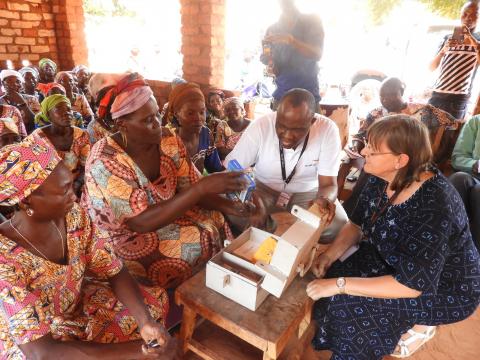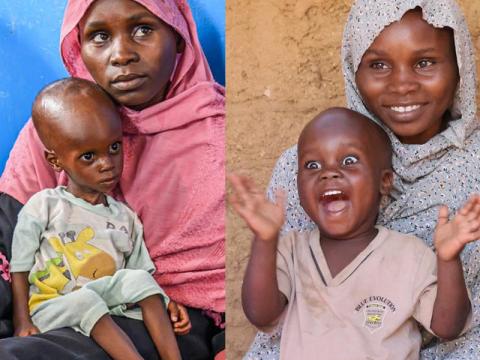
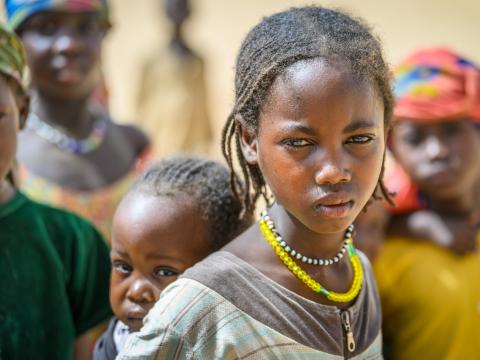
Appeal: Help children impacted by conflict
The conflict in Sudan is now the world’s largest child displacement crisis, with a recorded 3.5 million children fleeing. Hundreds to thousands of these children and their families cross the border into Chad on a daily basis.
You can help save lives.
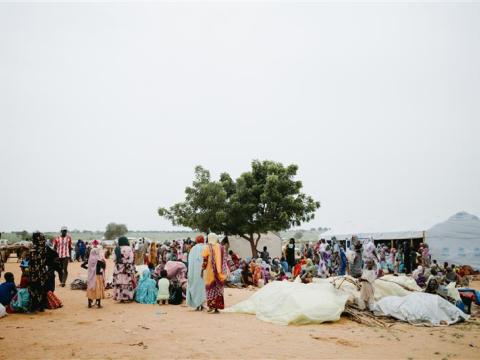
Breaking the Cycle
Sudanese women confront rape and violence; find support in refugee camps in Chad
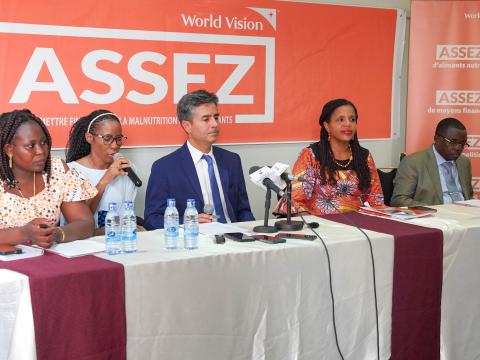
World Vision launches ENOUGH campaign in Chad to address child hunger and malnutrition
World Vision intensifies efforts to end child hunger and malnutrition in Chad with launch of new ‘ENOUGH’ campaign aiming to reach 8 million children.
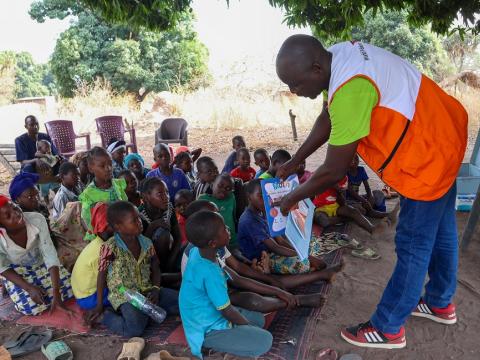
World Vision's Unlock Literacy approach stimulates Learners' Ability to Read
World Vision Chad's Education Sector Manager initiated a field visit to monitor compliance with the implementation of the UL (Unlock Literacy) project model.
World Vision's response to the influx of Sudanese refugees in Kounoungou
More than 30,000 refugees are spread over a distance of more than 1,300 kilometres of extremely porous border that separates the two countries, Chad and Sudan, according to UNHCR estimations. Zara and her granddaughter Hawa are among the affected.
All children are educated for life, participating and are protected
We are working to improve the well-being of 6,500,000 children by partnering with families, communities and the government to reduce poverty in Chad.
Chad
World Vision Chad
Fueled by interethnic clashes, Chad has experienced significant instability since its independence in 1960. The delicate situation for Chad's population is made more precarious by conflicts in neighbouring countries, which drive refugees over its borders. Additionally, the effects of climate change, which are aggravating the desertification and drying up Lake Chad, complicate things further.
Since 2003, the economy became dependent on oil. But, a drop in oil prices in 2014 plunged the country into a deep recession.
All of these issues affect children most. Our teams have been working in Chad since 1985. We work with communities, local actors, the government and the United Nations to improve the well-being of children, through emergency and development programmes.
15.6 million
N'Djamena
13.3 billion
Recent Updates

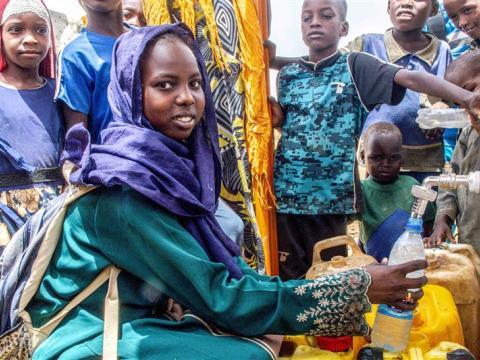
Water supply for Sudanese refugees at Farchana camp
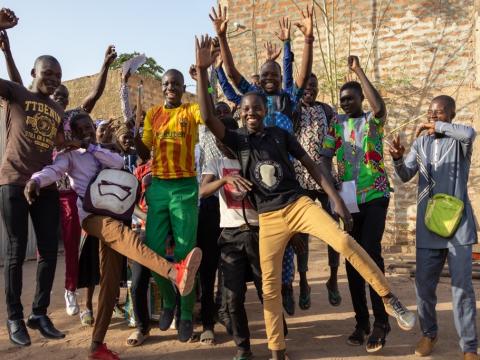
Safeguarding Children: The Ngourkosso Child Protection Network in Action
Our Work
In addition to sponsorship projects, we partner with like-minded organisations on specific time-bound projects.
We want to see children (girls and boys) read with comprehension in primary school.
According to the RESEN 2014, in 2000, it was estimated that only 51% of adults aged 22-44 could read easily after reaching grade 6 in the Chadian education system. In 2004, the situation worsen: only 47% of adults aged 22-44 were able to read easily after six years of study.
The 2010 MICS survey indicates that only 39% of women aged 15-49 who had access to school were able to read easily after completing primary schooling.
A very high proportion of students do not master the most basic notions that are essential for triggering learning. This is for example the grade 2 students who do not master the alphabet, the building of simple sentences or the understanding of a very short text.
The FLAT survey World Vision Chad conducted in 2017 in its intervention zones revealed that none of the APs got 30% of grade 5 and 6 primary school students who were able to read. In addition, the STAR Baseline conducted in 2017 and 2018 revealed that none of the APs got 3% of grade 3 primary school students who were able to read with comprehension.
WVT has focused on one aspect of quality education, ie reading, using a project model called Unlock Literacy. This model is a development from the Save the Children model called Literacy Boost. The implementation of this project model requires active participation of all stakeholders such as school authorities, teachers, parents, communities, CBO/FBO and other NGO. The communities commit their time and resource in order to facilitate what are called ‘reading camps/clubs’, a time set aside for children to practice their reading under supervision from community representatives. Parents are urged to support the reading habits of their children. Teachers are taught to teach in a different way and government education authorities are urged to commit funding resources from their budgets and supervision resources to ensure trained teachers are supported in their new skills
So far,
-
185 reading camps/clubs have been set up in communities
-
388 community volunteers have been trained as reading camps facilitators
-
11796 children participate in reading camps/clubs activities in the communities
-
685 teachers have been trained on UL project model methodologies. And those teachers are working with 30867 grade 1, 2 and 3 primary school students in schools.
Vulnerable Children in Chad Need Your Help to Defeat Poverty
Get InvolvedBetter Hygiene; Better Health
In Chad, children regularly suffer from illnesses, due to a lack of hygiene and sanitation in rural areas. In addition to efforts by World Vision to improve the hygiene and sanitation facilities in their school, the students themselves arrive to make their school clean.
Helping the Vulnerable
The Lake Chad crisis has caused the internal displacement of more than 130,000 people, including more than 10,000 refugees. The majority of these people are women and children. Fleeing abuses by armed groups, these communities found themselves in hostile areas without water, hygiene, sanitation or education facilities. World Vision helps by giving hygiene kits and through the provision of clean drinking water.
Water To Stay in School
The majority of schools in the communities where we serve are located far from children's homes. Children who live several kilometers away from school often do not finish the five-hour school day because of lack of water near their school. . This is a factor in dropping out of school. To help keep children in school, we drill wells in the schools furthest away from homes. Now, children have drinking water in schools and Meecan finish their classes.
Quenching thirst for Chad’s Children
Quenching thirst for Chad’s Children
Lack of clean water and sanitation facilities affects families, especially those in rural areas where only 38% have access to clean water and only 3% have access sanitation facilities.
We are working to ensure all children have access to safe drinking water and improved sanitation facilities near their homes, schools and health centers.
